This article first appeared in our old blog on September 22, 2013.
We had a really cool guide. No time passed in the bus without him telling us all about Japan. I was lucky to sit in the front row.
Japanese money is the coolest in the world. They use special ink and printing techniques. For more on Japanese bills, click here.
The people printed on the bills, unlike other countries in the world, were from all walks of life. Other countries mostly use their former presidents or queen (England) or former war heroes. Japanese 5,000 yen bills picture the first professional female author who died young at 24.
The guide then waved a 1,000 yen bill and said, ” And this one, you all should know this one… anyone? Anyone?”
Nobody raised their hands.
Guide, “This is Noguchi Hideyo…”
Matt (6 years old), ” Ha! Never heard of him…”
Everybody erupted in laughter.
Noguchi Hideyo
Born in 1876, Noguchi fell into the fireplace at his house when he was 18 months old and burnt his left hand severely. When in elementary school, a teacher who noticed him arranged a donation for his surgery. This experience made Noguchi decided to study medicine. He graduated with flying colors.
In 1900, he moved to America and worked as a research assistant. He loved his job and was nominated for Nobel prize in medicine several times. He discovered the causes of syphillis, leishmaniasis and uses of snake poison in serum among his other works.
Old People In Japan
Old people in Japan work at toll booths and as taxi drivers so young women can work in places that are less hazardous. Japan faces population problems due to, longer lives and fewer babies. Women are needed to give birth to more babies, so they must be healthy. The Japanese has the highest life expectancy rate in the world.
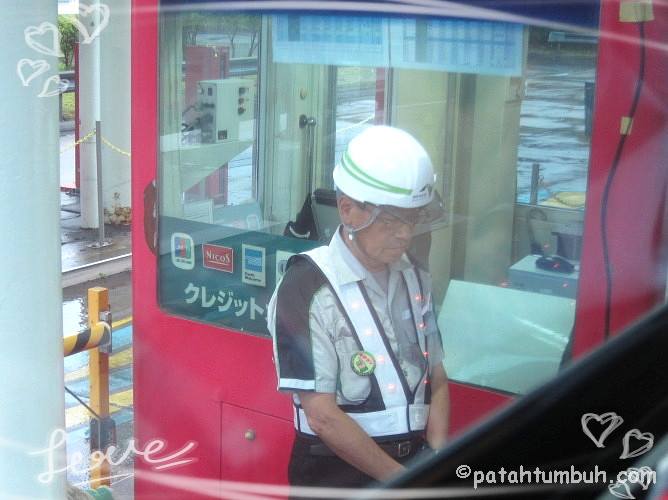
Tomita Farm
Time flew as we listened to our guide and we arrived at Tomita Farm in a blink of eye. Mount Tokachi at the back ground is marvelous!
A little about Tomita Farm :
Year 1958 – start planting lavender for the essence.
Year 1980 – start marketing lavender essential oil.
Year 1984 – launch first perfume, Furano.
Year 1990 – their lavender essential oil won first prize at “Lavender Perfume Fair” in France.
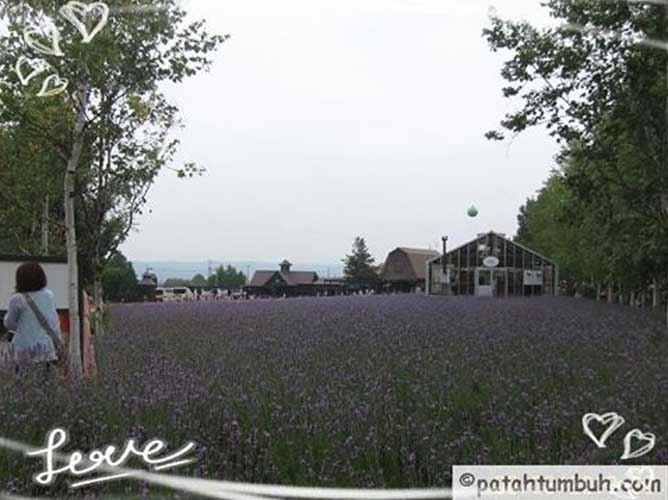
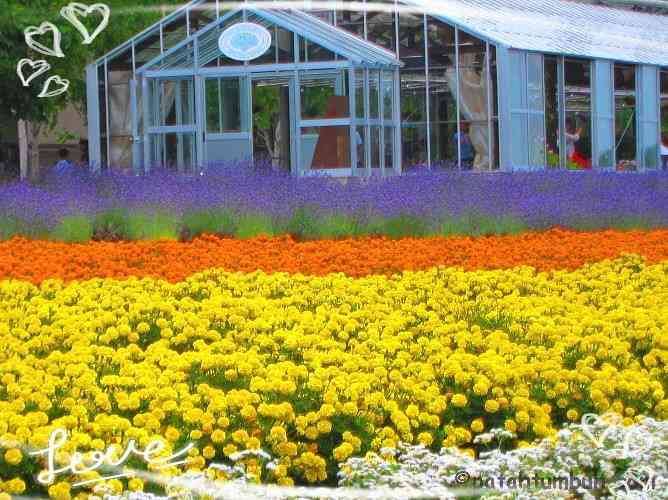
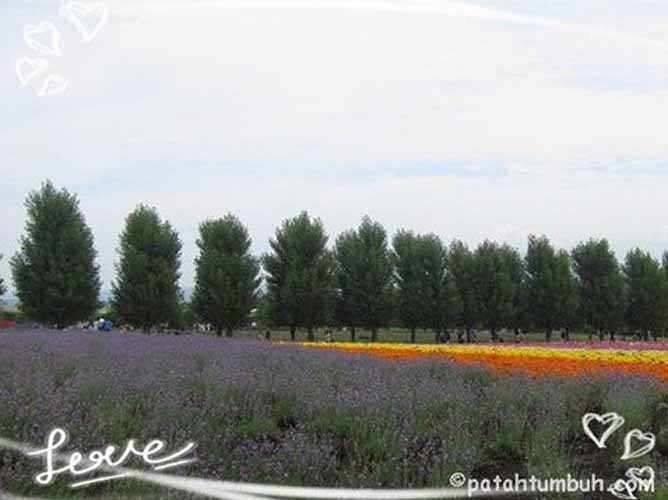
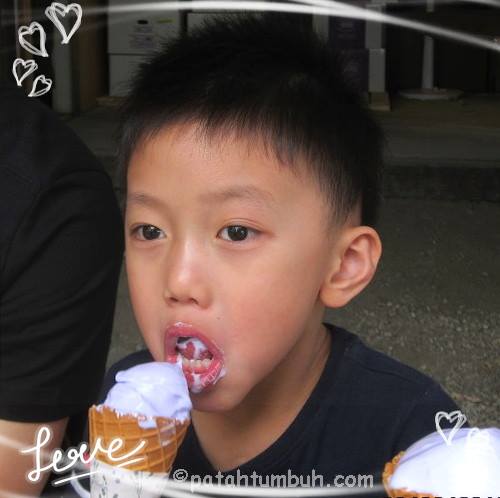

Lavender essential oil is believed to have anti anxiety and stress relief effects. It also can reduce headaches. To treat cough and other upper respiratory tract infections, several drops of lavender essential oil is put into vaporizer. Some use it as antiseptic and analgesic and also minor burns and insect bites.
They also plant melon at Tomita Farm. Hokkaido’s melons are very famous; they are meaty, juicy and very sweet.
Of course, they plant lots of flowers, too.
After lunch, we went to the next destination, Alpaca Farm.
Alpaca Farm
Everybody was wow-ing as we arrived at Alpaca Farm.

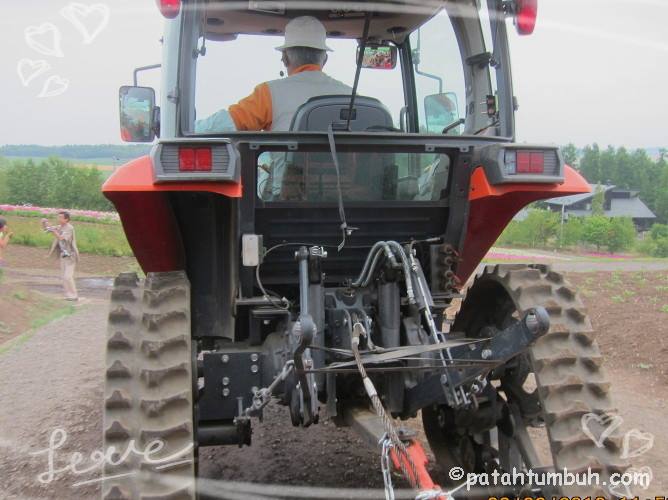

Before we got into the farm where the alpacas were, we had to step in an antiseptic solution to disinfect the soles of our shoes so we would not bring germs inside.

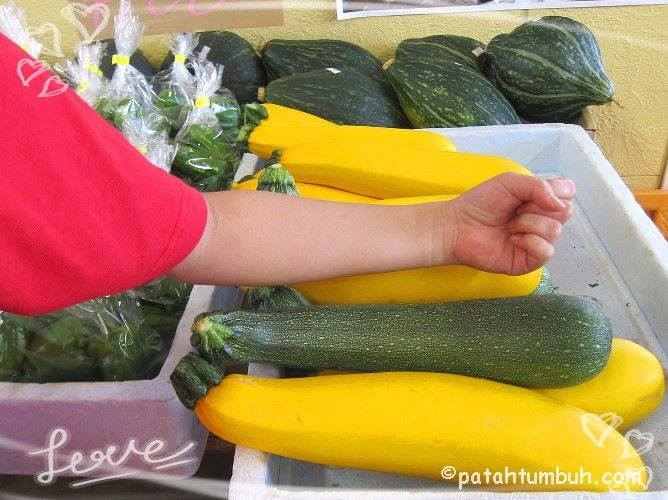
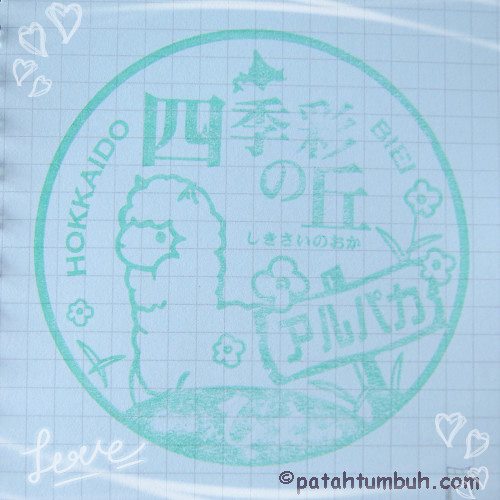
Sapporo
Next, we rode to Sapporo, Hokkaido’s capital and the fifth biggest town in Japan. We took a stroll for a bit in Odori Park, though not for long. It is a very long park (1.5 km) and located at the center of Sapporo, dividing it into North and South Sapporo. The very famous Sapporo Snow Festival is held here every winter. At the 58th festival in 2007 it was estimated that more than two million people visited Sapporo to see the snow statues and ice sculptures at Odori Park. There were 14 teams from various regions of the world who participated in the International Snow Sculpture Contest here in 2008.
Tanuki Koji Shopping Arcade
Not wasting any more of our precious time at Odori Park which was nothing extraordinary in summer, we went to Tanuki Koji Shopping Arcade, the most visited shopping area in Sapporo. Various festivals and ceremonies are held here every year. This shopping arcade is a long road divided into 7 sections by roads crossing between sections. The shopping arcade road is closed for vehicles but not the roads crossing it. Besides shops, there are hotels, and restaurants.


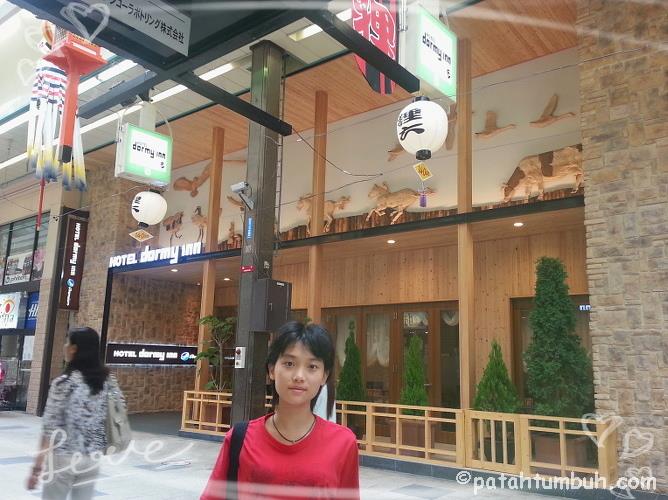
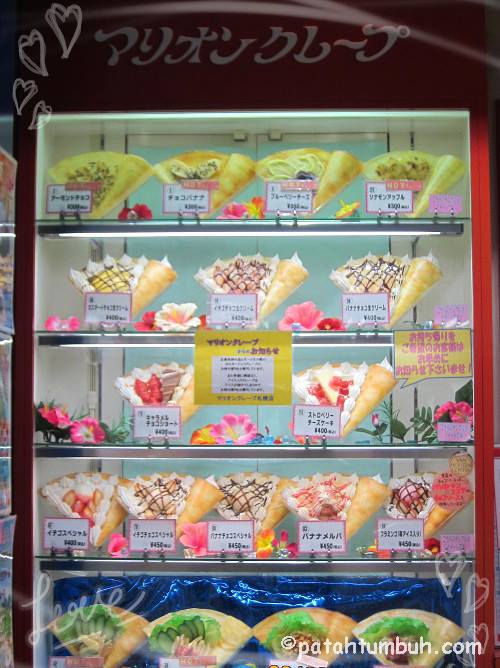

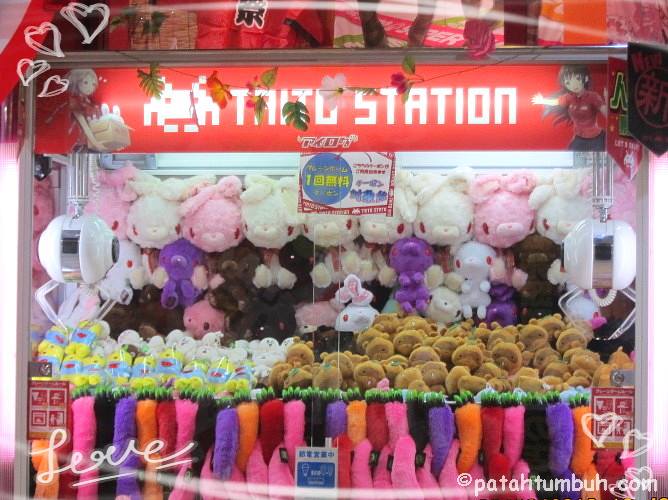

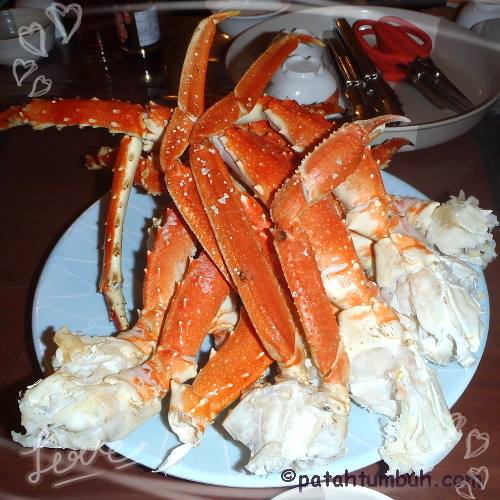
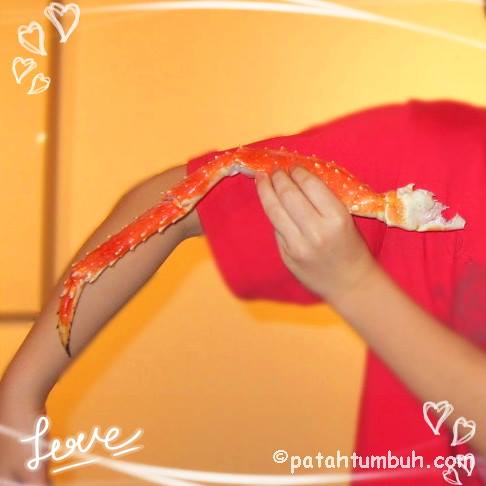

Rested a bit and to onsen we went…
Onsen
You will sleep better after a soak in onsen. I tried it! Hokkaido is known as ‘King of Hot Spring’. So many variations of onsens here, from the big onsens inside hotels to small public bath in the mountains. Onsens‘ water comes from hot springs; while sento uses heated tap water. To be called onsen, the water should contain at least one of the 19 designated chemical elements, including radon and the temperature should be at least 25 degree Celcius without being reheated. The water is then distributed to bath places without being processed. To maintain the volume and temperature, the water is circulated while sterilized.
There usually are several baths with different minerals content, each with different benefits. The onsen is named after it’s mineral content, io-sen (sulfur onsen), tetsu-sen (iron onsen) and so on.
Traditionally, men and women bath together in onsens, but now, separate onsens are available. Children can get inside both men or women onsens. Mixed bathing still persists at some rural areas in Japan.
The Japanese believe soaking in onsen can heal illnesses or injuries such as arthritis, dermatitis, diabetes, hemorrhoid, gastrointestinal disorders, wounds, cuts, burn, etc.
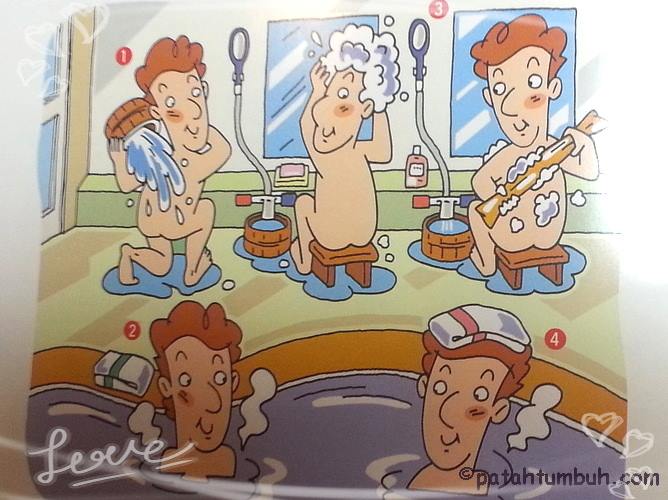
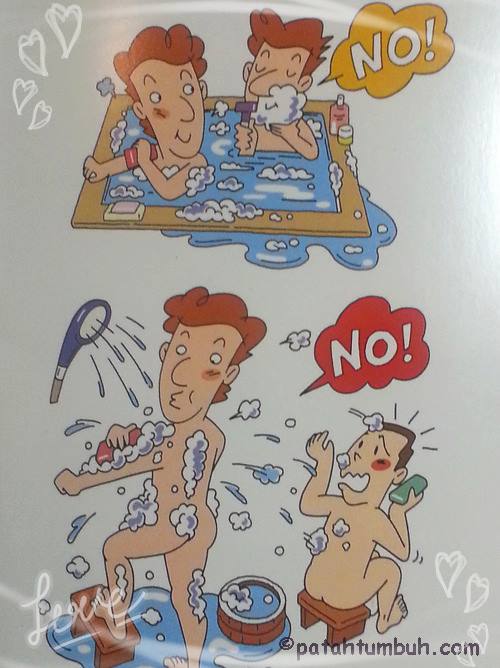
We go to onsen wearing only our underwear, yukata and sandals, bring a big towel to dry ourselves after bath and a small towel for rubbing. Outside the baths, there is a big room with baskets on shelves. We put all our stuff in the basket, bringing in only the small towel.
Do (consult pictures):
- Clean yourself with tap water.
- Get into the tub, soak a while, get out again.
- Wash yourself using your small towel with the body soap and shampoo provided there. Rinse. To wash the small towel, use a little round wooden pail filled with tap water.
- Get back inside the hot baths and soak until your skin peels off (kidding…:p) or you can switch to another hot bath.
Don’t:
- Immerse or dip towel inside the hot bath water.
- Use soap or shave in the bath.
- Get inside bath wrapped with towel.
- Stand while clean yourself outside the bath. Sit on the small stool provided.
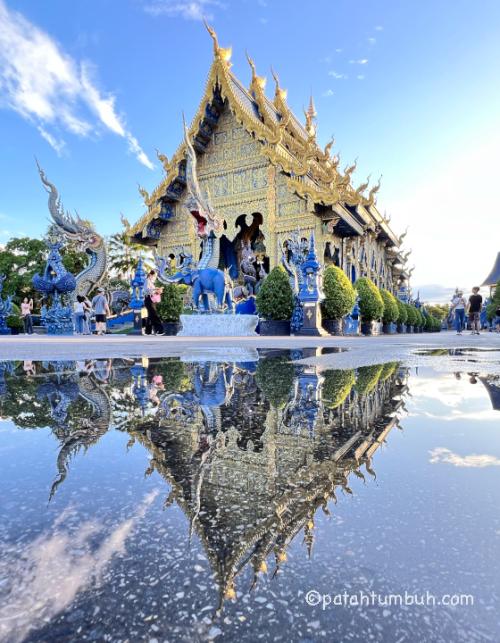

Add new comment